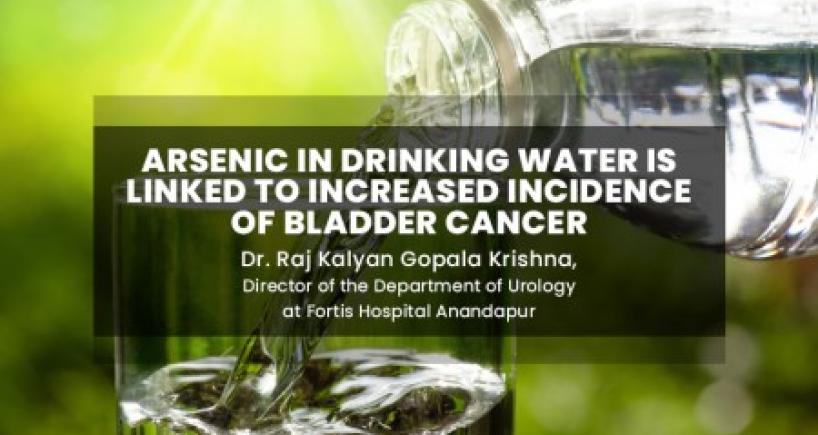
Urology
Arsenic In Drinking Water Is Linked To Increased Incidence of Bladder Cancer
Dr. Raj Kalyan Gopala Krishna Oct 10, 2019
Recent studies across the globe have concluded that long-term consumption of drinking water high in arsenic content can lead to a higher incidence of bladder cancer. Though water consumption is not directly linked to cancer formation, the quality of water is a definite correlation. We have seen many cases where patients have developed malignancy due to long term exposure to arsenic-contaminated water.
Arsenic is an element widely distributed in the earth’s crust, and in groundwater in many countries.
Long-term intake of arsenic-contaminated water leads to arsenic poisoning or arsenicosis, which can lead to cancer of skin, bladder, kidney, or lung or diseases of the skin or blood vessels of legs and feet. In India, this is widely prevalent in the states of West Bengal, Jharkhand, Bihar, Uttar Pradesh, Assam, Manipur, and Chhattisgarh, where the arsenic contamination of groundwater is much higher than WHO’s permissible limits.
As per WHO, the permissible value of arsenic in drinking water is is 0.01mg/l whereas, in developing countries like India, the permissible limit is kept higher ie. 0.05mg/l. As per reports from the ministry of health, a population of 1.47 crore across almost 17,000 areas in the country faces a major health hazard due to arsenic-contaminated drinking water. As per studies in 2017, over 44% population of West Bengal consumes arsenic-contaminated water on a regular basis.
Categories
Clear allMeet the doctor

Dr. Raj Kalyan Gopala Krishna
DIRECTOR UROLOGY | FHKI Gariahat
- Urology | Urology | Uro-Oncology
-
32 Years
-
1000




















